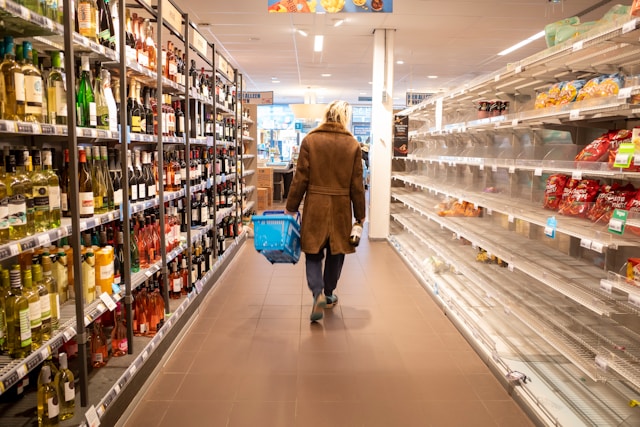Inflation soars to 2.6%. “And it’s just the beginning”
TORONTO – The experts had predicted it, and unfortunately they were right: the annual rate of inflation increased last month (February), rising to 2.6%, from 1.9% in January. Statistics Canada announced it today, noting that the end of the GST/HST suspension (the tax on commercial goods, suspended by former Prime Minister Justin Trudeau before Christmas, until February 15), contributed “notable upward pressure to prices for eligible products”.
In fact, for two months, the federal government removed the goods and services tax (GST) or the harmonized sales tax (HST) on dozens of items sold in stores and supermarkets, including some groceries, restaurant meals, alcohol and toys. This tax break, for example, caused the prices of food in restaurants to fall by 1.4% (on an annual basis) during that period. But once the GST/HST was re-implemented, “restaurant food prices contributed the most to the acceleration” of the overall price index in February, StatCan says. Alcohol, children’s clothing and toys were also included, we said, in the tax exemption and saw their costs fall in February, although not as much as they had in January.
In regional inflation data from Statistics Canada (here you can read the full report), the consumer price index increased in every province last month, with Ontario and New Brunswick experiencing the fastest increases.
February inflation figures do not directly reflect the imposition of tariffs or counter-tariffs between Canada and the United States, which only came into effect in March after a series of deadlines and announcements. However, the effects will be felt and will likely add to the aftermath of the end of the GST/HST suspension, further driving up inflation. “Tariffs impact many aspects of the economy, including inflation” Statistics Canada explains. “The imposition of tariffs by the United States and/or counter-tariffs by the Canadian government will impact the prices paid by Canadian consumers in the coming months”.
Economists also expect the trade war with the United States to push up prices in the months ahead. Benjamin Reitzes, a macroeconomic strategist at BMO, says March inflation data will likely show an increase as well, with the tax holiday now completely out of the equation. And this will complicate the efforts of the Bank of Canada, which has repeatedly cut interest rates in recent months (to the current 2.75%) after managing to bring inflation back below 2%. What will they do now?
Photo by Martijn Baudoin from Unsplash



